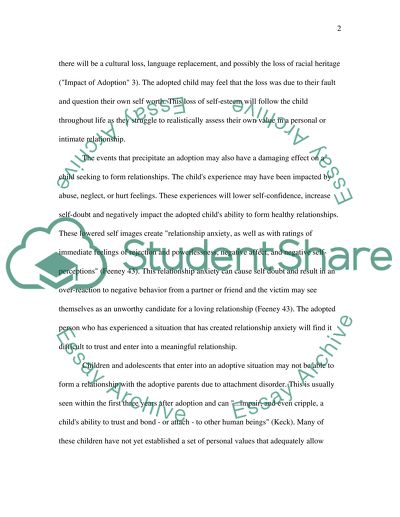Cite this document
(“The Struggle of Adoptive Children: Interpersonal Relations Essay”, n.d.)
The Struggle of Adoptive Children: Interpersonal Relations Essay. Retrieved from https://studentshare.org/people/1526119-the-struggle-of-adoptive-children-interpersonal-relations
The Struggle of Adoptive Children: Interpersonal Relations Essay. Retrieved from https://studentshare.org/people/1526119-the-struggle-of-adoptive-children-interpersonal-relations
(The Struggle of Adoptive Children: Interpersonal Relations Essay)
The Struggle of Adoptive Children: Interpersonal Relations Essay. https://studentshare.org/people/1526119-the-struggle-of-adoptive-children-interpersonal-relations.
The Struggle of Adoptive Children: Interpersonal Relations Essay. https://studentshare.org/people/1526119-the-struggle-of-adoptive-children-interpersonal-relations.
“The Struggle of Adoptive Children: Interpersonal Relations Essay”, n.d. https://studentshare.org/people/1526119-the-struggle-of-adoptive-children-interpersonal-relations.


